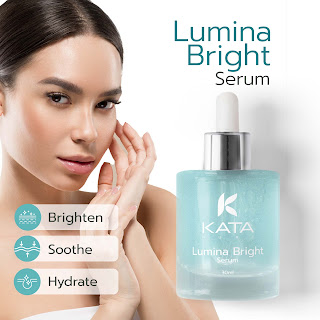How to Choose the Right Sunscreen for Your Skin Type
Choosing the right sunscreen is essential for protecting your skin from harmful UV rays. With various formulations on the market, it's crucial to select a sunscreen that suits your specific skin type. Here's a comprehensive guide to help you find the perfect match.
Identify Your Skin Type
- Oily Skin: If your skin tends to get shiny throughout the day, look for a sunscreen labeled as "oil-free" or "non-comedogenic." These formulas help prevent clogged pores and reduce excess oil production.
- Dry Skin: For dry skin, opt for sunscreens that offer added hydration. Look for ingredients like hyaluronic acid or glycerin to keep your skin moisturized while protecting it from the sun.
- Sensitive Skin: If your skin is prone to irritation, choose a sunscreen that is fragrance-free and hypoallergenic. Mineral-based sunscreens with zinc oxide or titanium dioxide are often gentler on sensitive skin.
- Combination Skin: For those with both oily and dry areas, a lightweight, non-greasy sunscreen is ideal. Gel-based or water-based formulas can provide balanced protection without making your skin feel heavy.
Understand SPF and Broad-Spectrum Protection
- SPF Rating: The Sun Protection Factor (SPF) indicates how well a sunscreen can protect your skin from UVB rays, which are responsible for sunburn. An SPF of 30 or higher is generally recommended for daily use.
- Broad-Spectrum: Ensure your sunscreen offers broad-spectrum protection, which means it shields your skin from both UVA and UVB rays. UVA rays contribute to premature aging, while UVB rays cause sunburn.
Consider Your Daily Activities
- Outdoor Activities: If you're spending a lot of time outdoors, choose a water-resistant sunscreen that won't easily wash off with sweat or water. Reapply every two hours for continuous protection.
- Everyday Use: For daily wear, especially if you're mostly indoors, a lightweight sunscreen with SPF 30 should suffice. Many moisturizers and foundations now include SPF, offering dual benefits.
Check the Ingredients
- Chemical vs. Mineral: Chemical sunscreens absorb UV rays, while mineral sunscreens reflect them. Both are effective, but if you have sensitive skin, mineral sunscreens might be less irritating.
- Additional Ingredients: Some sunscreens contain antioxidants like vitamin C or E, which can offer extra protection against environmental damage.
Test the Product
- Patch Test: Before fully committing to a sunscreen, do a patch test by applying a small amount to your wrist or behind your ear. This helps ensure that the product doesn't cause any adverse reactions.
- Texture and Finish: Choose a sunscreen with a texture that feels comfortable on your skin. Some sunscreens offer a matte finish, while others provide a dewy glow, so select one that complements your desired look.
Don't Forget About Your Lips
Lip Balm with SPF: Your lips are also vulnerable to sun damage, so choose a lip balm that contains SPF 15 or higher. Reapply frequently, especially if you're eating or drinking.
Conclusion
Selecting the right sunscreen for your skin type is crucial for effective sun protection. By considering factors like skin type, SPF, daily activities, and ingredients, you can ensure that your skin stays safe and healthy under the sun. Remember, consistent use of sunscreen not only protects against sunburn but also helps prevent premature aging and reduces the risk of skin cancer.
Incorporate sunscreen into your daily skincare routine and enjoy the benefits of beautiful, protected skin all year round.


Comments
Post a Comment